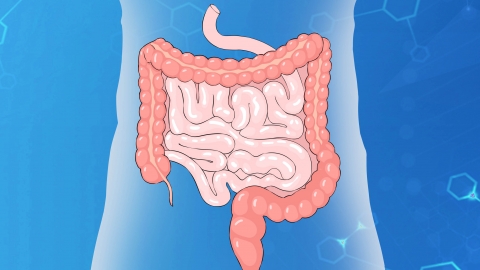How is rectal polyps treated?
In general, anal and intestinal polyps may be caused by genetic factors, obesity, smoking and alcohol consumption, intestinal flora imbalance, abnormal bile acid metabolism, and other factors. It is recommended to seek timely medical attention, identify the underlying cause, and then undergo recovery through general treatment, medication, or surgical treatment under the guidance of a professional physician. A detailed analysis is as follows:

1. Genetic Factors
Mutations in genetic material may lead to abnormal regulation of intestinal mucosal cell growth, making it easier to develop anal and intestinal polyps. Regular colonoscopy is recommended for early detection and removal of polyps. For high-risk individuals, preventive surgical removal of the entire colon and rectum may be necessary.
2. Obesity
Regular consumption of high-calorie foods may lead to obesity, which can affect the mucosal repair process and cell renewal in the intestines, promoting the formation of anal and intestinal polyps. Associated symptoms may include excess weight, hypertension, and impaired glucose tolerance. Timely lifestyle interventions are recommended, including weight loss, healthy eating, and regular exercise. If necessary, medications such as metformin hydrochloride sustained-release tablets, glipizide tablets, or acarbose tablets may be used to control metabolic indicators.
3. Smoking and Alcohol Consumption
Harmful substances in tobacco and alcohol can directly damage the intestinal mucosa, interfere with normal cell growth, and promote the formation of anal and intestinal polyps. Accompanying symptoms may include dry mouth and coughing. It is recommended to quit smoking and limit alcohol consumption to improve lifestyle habits. For existing polyps, treatment options may include endoscopic polypectomy or electrocautery.
4. Imbalance of Intestinal Flora
When the balance of intestinal flora is disrupted—such as a decrease in beneficial bacteria and an increase in harmful bacteria—the intestinal barrier function may be affected, triggering local inflammatory responses and promoting the formation of anal and intestinal polyps. Associated symptoms may include digestive issues such as diarrhea and bloating. It is recommended to use antibiotics rationally under a physician's guidance and avoid misuse. Dietary adjustments should be made to enhance intestinal health.
5. Abnormal Bile Acid Metabolism
An imbalance in bile acid metabolism within the intestines, especially an increased proportion of secondary bile acids, may promote abnormal proliferation of intestinal mucosal cells, leading to the formation of anal and intestinal polyps. It is recommended to adjust your diet by reducing the intake of high-fat foods and increasing dietary fiber to lower bile acid levels in the intestines.
When treating anal and intestinal polyps, appropriate treatment methods should be selected based on individual conditions. At the same time, maintaining good lifestyle habits and a positive mindset is essential.






